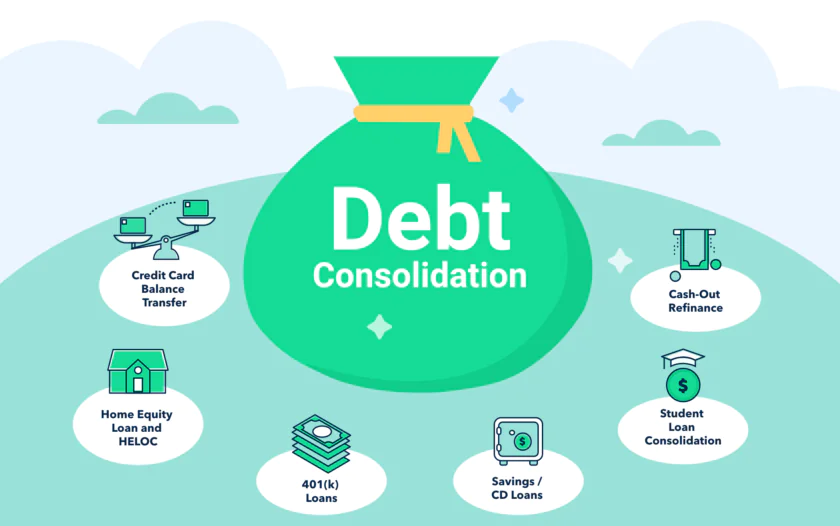When it comes to building a new commercial property, whether it’s an office building, a shopping center, or an industrial warehouse, financing plays a pivotal role. For most developers, ground-up commercial construction requires substantial capital investment. In such cases, ground-up commercial construction loans can be the solution to bring a project to life.
In this blog, we’ll explore what ground-up commercial construction loans are, how they work, the different types of loans available, and the steps involved in obtaining one. By the end of this guide, you’ll have a clear understanding of how to finance your next commercial construction project.
What is a Ground-Up Commercial Construction Loan?
A ground-up commercial construction loan is a short-term, specialty loan used to finance the construction of a new commercial property from the ground up. Unlike a standard commercial mortgage, which is typically used to finance an existing property, a ground-up construction loan is specifically designed to fund the building of a new property.
This type of loan covers a wide range of costs associated with constructing a commercial building, including:
- Land acquisition: The cost of purchasing the land for the property.
- Construction costs: The cost of materials, labor, and equipment to build the property.
- Permits and fees: Costs associated with obtaining permits, zoning approvals, and legal fees.
- Architectural and design fees: Fees for architects, engineers, and designers.
- Finishing costs: Costs associated with the final touches such as landscaping, painting, flooring, and interior furnishings.
Ground-up commercial construction loans typically come with higher interest rates and stricter qualification criteria than traditional loans because they carry more risk for the lender. The lender is essentially providing financing based on a projected property, not a physical asset with an existing value.
How Do Ground-Up Commercial Construction Loans Work?
Lenders disburse ground-up commercial construction loans in stages or “draws” as the construction project progresses. This means the borrower does not receive the full loan amount upfront; instead, the lender releases the funds incrementally based on construction milestones.
Here’s how the loan process typically works:
- Application Process: The borrower applies for the loan, submitting necessary documents like a construction budget, project timeline, blueprints, business plan, and personal and business financial statements.
- Loan Approval and Terms: Once the lender approves the loan application, the borrower receives the loan terms, including the interest rate, repayment schedule, and other conditions. The loan is usually a short-term loan, often ranging from 12 months to 3 years, depending on the project.
- Disbursement of Funds: The funds are disbursed in stages (draws) based on the progress of the construction project. Typically, the lender will require inspections at each stage to ensure the project is progressing as planned.
- Interest-Only Payments: During the construction phase, borrowers typically make interest-only payments on the loan. These payments are based on the disbursed amount of the loan, so they will gradually increase as more funds are drawn.
- Completion of Construction: Once the construction is completed, the borrower can either pay off the loan in full, refinance it into a permanent commercial mortgage, or secure additional financing if necessary.
Types of Ground-Up Commercial Construction Loans
There are several types of ground-up commercial construction loans, and each is suited for different types of projects. The main types include:
1. Construction-to-Permanent Loans
A construction-to-permanent loan is a hybrid loan that combines both the construction loan and the permanent financing (mortgage) into one. Once the construction is complete, the loan converts to a permanent mortgage, typically with a lower interest rate. This eliminates the need for the borrower to refinance the loan once construction is finished.
Benefits:
- Streamlined Process: The borrower doesn’t need to apply for a separate mortgage once the building is completed.
- Single Loan Closing: Only one loan closing, which can save time and money.
- Lower Interest Rate: The interest rate is typically lower after the construction phase.
2. Stand-Alone Construction Loans
A stand-alone construction loan is a short-term loan that finances the construction process. Once the building is completed, the borrower must pay off the loan in full or refinance it into a permanent commercial mortgage.
Benefits:
- Separate Loan Stages: Allows the borrower to have more flexibility in securing a long-term mortgage once construction is complete.
- Faster Construction Process: Can expedite the construction process since the borrower is not locked into a long-term loan right away.
Drawbacks:
- Higher Interest Rates: Stand-alone construction loans often come with higher interest rates compared to construction-to-permanent loans.
- Refinancing Risk: After the construction is complete, there is a risk of not being able to secure a permanent mortgage or facing higher interest rates.
3. Bridge Loans
A bridge loan is a short-term loan that “bridges” the gap between the completion of construction and securing a long-term commercial mortgage. Borrowers often use this type of loan when they need additional time to secure permanent financing.
Benefits:
- Quick Access to Funds: Bridge loans can provide quick access to funds, which can help keep the construction project on track.
- Flexibility: Bridge loans can be used as temporary financing until permanent financing can be arranged.
Drawbacks:
- Short-Term: Bridge loans are typically short-term (usually 6 months to 2 years), which means the borrower must secure permanent financing quickly.
- Higher Interest Rates: Bridge loans usually come with higher interest rates compared to traditional construction loans.
Eligibility Requirements for Ground-Up Commercial Construction Loans
Lenders are cautious when offering construction loans because they carry more risk. To qualify for a ground-up commercial construction loan, borrowers need to meet certain eligibility requirements. While specific requirements vary by lender, here are some common factors that lenders consider:
- Strong Credit Score: A strong credit score is essential to securing favorable terms on a commercial construction loan. Most lenders require a credit score of at least 650 to 700 for construction loans.
- Project Feasibility: Lenders will want to see a detailed business plan and project feasibility study to ensure that the construction project is viable and has the potential for future profitability.
- Personal and Business Financial Statements: Lenders will review both the borrower’s personal and business financial statements to assess the borrower’s ability to repay the loan. A healthy financial history and strong cash flow are essential.
- Down Payment: Lenders typically require a down payment, often ranging from 10% to 30% of the total construction cost. The larger the down payment, the more likely it is that the borrower will be approved.
- Construction Plans and Budget: A detailed construction plan, including timelines, architectural drawings, and cost estimates, is necessary for the lender to evaluate the project’s potential success.
- Collateral: Lenders may require collateral, such as the land being developed or other assets, to secure the loan.
How to Apply for a Ground-Up Commercial Construction Loan
The process of applying for a ground-up commercial construction loan typically involves several key steps:
- Prepare Documentation: Gather all necessary documentation, including construction plans, business plans, financial statements, and land appraisal reports.
- Find a Lender: Research lenders who specialize in commercial construction loans. These may include banks, credit unions, or private lenders.
- Submit Application: Complete the application process with your chosen lender, ensuring you provide all required information and documents.
- Loan Review: The lender will review your application, assess the risk, and evaluate your financial history. They may also conduct a property appraisal.
- Approval and Loan Agreement: If approved, the lender will offer you loan terms, including interest rates, repayment schedules, and any other conditions.
- Disbursement of Funds: Upon approval, the lender will disburse funds in stages as construction progresses.
Conclusion
Ground-up commercial construction loans are an essential tool for developers looking to finance the construction of a new commercial property. While these loans can be more complex than traditional mortgages, they offer flexibility and enable you to bring your construction project to life.
If you are considering building a commercial property, understanding the types of construction loans, eligibility requirements, and the application process will help you make informed decisions about financing. Take the time to research your options, speak with lenders, and carefully assess your project’s feasibility before committing to a loan. By doing so, you can ensure that your construction project is financially secure and set up for long-term success.
FAQ
Q1: What is the difference between a construction-to-permanent loan and a stand-alone construction loan?
A construction-to-permanent loan combines both the construction financing and the long-term mortgage into one loan, while a stand-alone construction loan is short-term and requires refinancing once construction is completed.
Q2: How much can I borrow with a ground-up commercial construction loan?
The amount you can borrow depends on several factors, including the lender’s terms, your creditworthiness, and the scope of your project. Lenders may finance up to 80% or more of the total construction cost.
Q3: Do I need a detailed business plan for a ground-up construction loan?
Yes, lenders typically require a detailed business plan to assess the viability of your construction project and ensure it has the potential for future profitability.
Q4: Can I use a ground-up construction loan for residential construction?
No, ground-up construction loans are designed for commercial properties. If you are building a residential property, you will need a residential construction loan.
Q5: How long does the approval process take for a commercial construction loan?
The approval process for a commercial construction loan can take anywhere from several weeks to a few months, depending on the complexity of the project and the lender’s review process.
Q6: Is earthquake insurance required for a ground-up commercial construction loan?
While earthquake insurance is not mandatory for all commercial construction loans, some lenders may require it depending on the location of the property and the associated risks.




